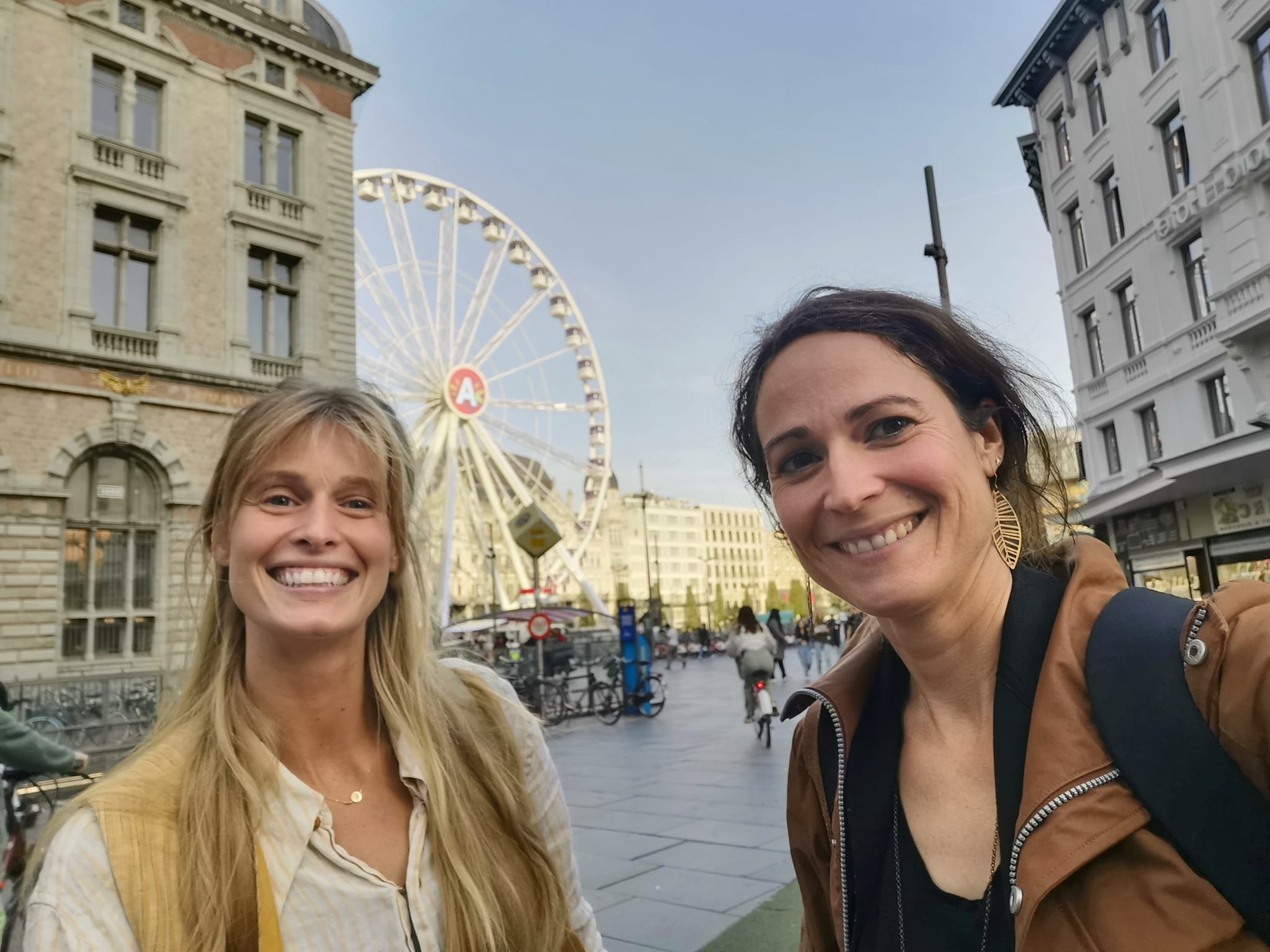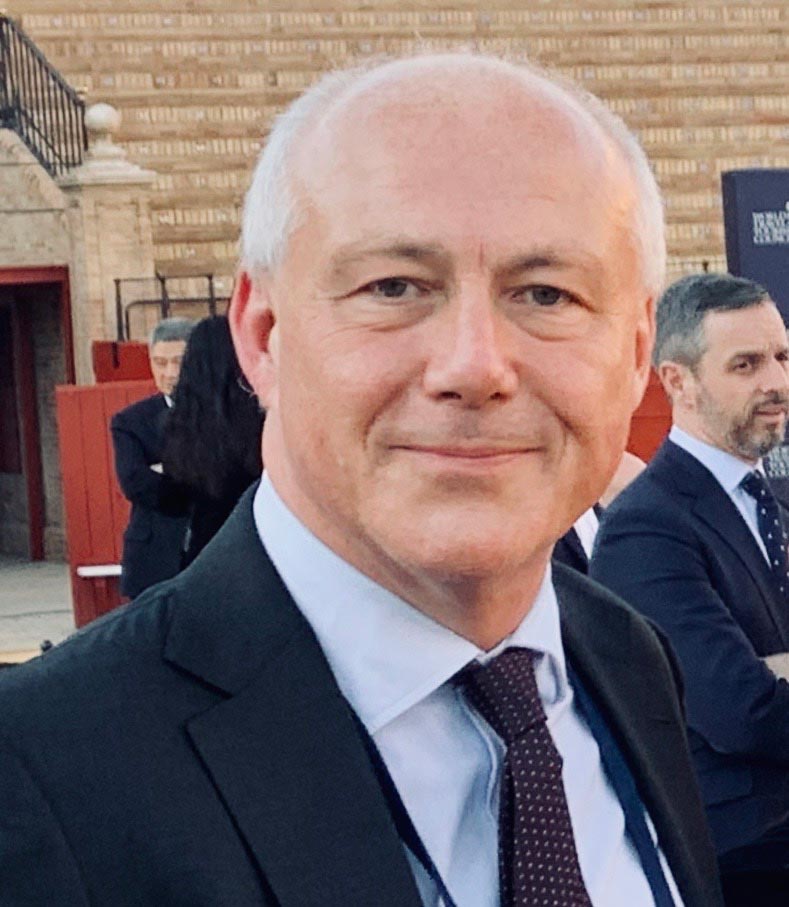News:
January 2026 | ETOA published its 2025 Climate Action Plan (CAP) Implementation Update.
November 2025 | ETOA participated in a panel on accelerating climate action using data for COP30 Tourism day, organised by Travalyst and The Travel Foundation in conjunction with UN Tourism.
November 2025 | ETOA held a Green Skills session at the GEM25 conference. An audience poll provided evidence of strong support among delegates for more collaboration and training to accelerate progress.
July 2025 | ETOA joined the Advisory Group for ‘Shared Horizons‘, a joint initiative between The Travel Foundation and Skyscanner to bring together aviation and tourism.
ETOA and Climate Action
Our Priorities
- Encourage planning and action in line with IPCC-based carbon emissions goals.
- Ensure travel and tourism are part of the solution as climate policy develops.
- Promote access to good practice, expertise and support to enable transition.
Our Purpose
- Building partnerships and resources to support the growth of good practice.
- Advocacy and debate in support of tourism’s long-term positive impact.
- Implement climate action plan (CAP) to manage our own environmental footprint.
Our Statements, Plans and Policies
- ETOA Climate Action Plan (CAP) Implementation Update 2025
- ETOA Climate Action Plan (CAP) 2022
- ETOA statement on Tourism and Climate Policy Aug. 2021
- ETOA Declares a Climate Emergency Dec. 2020
Effective action on climate action is a precondition for long-term economic success. New economic models and issues of inter-generational fairness are now part of mainstream debate. Added to science-based urgency is pressure from consumers, clients and finance. The importance of environmental, social and governmental (ESG) criteria to commercial investors is growing.
Europe needs tourism as a job-generator for its long-term economic and social success. Travel and tourism contribute c.8% of global carbon emissions, and that figure is growing. While European public sector tourism bodies may prioritise value over volume, tourism continues to grow, not least because more people can afford to travel.
For tourism to thrive in 2030 and beyond, advocacy and action, better regulation and smart finance are needed to mitigate negative impacts on climate and maximise the benefit that the visitor economy can bring.
Pathway to Net Zero
2030
2030
Net greenhouse gas emissions reduced by at least 55% in the EU, and by 68% in the UK, compared with 1990 levels.
2050
2050
EU Climate Neutrality (net zero), UK Net Zero
What will mass mobility look like in a carbon neutral 2050? How will service providers have adapted? Carbon emissions reduction targets were the central outcome of the Paris Agreement in 2015. It is their adoption by legislators and consequent regulation which will shape the business environment for the foreseeable future. According to the UN, global CO2 emissions have increased by almost 50% since 1990.
In July 2025 the European Commission proposed an interim target of 90% GHG reductions by 2040 (55% remains the target for 2030). View the Factsheet and Q&A here.
Our Climate Action Progress
ETOA’s Climate Action Plan (CAP) has an in-house dimension where the focus today has been our commercial events, member support tools, and participation in policy development.
January 2026 | ETOA published its 2025 Climate Action Plan (CAP) Implementation Update.
June 2025 | ETOA announced its partnership with ZEERO Group. Read the press release on Travel Weekly.
February 2025 | ETOA ran a Climate Action Workshop facilitated by climate expert, Jeremy Smith, on the 26th February in Brussels. Read the briefing note.
November 2024 | The results of the ETOA membership CAP mapping exercise are now available (below), containing a full description of the exercise and methodology.
September 2024 | ETOA published its 2024 Climate Action Plan (CAP) Implementation Update.
August 2024 | ETOA begins a detailed mapping exercise of the climate action plan (CAP) status of ETOA members.
July 2024 | ETOA hires a Sustainability Specialist to enhance ETOA’s knowledge and activity on sustainability and climate action, including our Climate Action Plan (CAP), developing resources for members to support the transition to more sustainable practice, and tracking progress across our community.
May 2023 | ETOA entered a new partnership with Greentripper (see Climate Action Partners below), a Belgian climate action consultancy and service provider. We will publish an update to our CAP setting out how they have helped us mitigate our activity for 2022, and what we have learned during that process.
February 2022 | ETOA published its first Climate Action Plan (CAP).
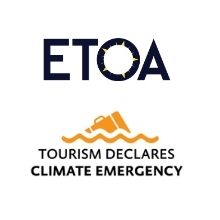
- We offer vegetarian-only menus at our in-person commercial events.
- We track event carbon footprint including a provision for delegate travel, and measure our in-house footprint.
August 2021 | Following the IPCC report in August 2021, ETOA issued a statement on tourism and climate policy.
December 2020 | ETOA formally declared a climate emergency.
Since July 2025, ETOA has contributed through the Advisory Group for ‘Shared Horizons‘, a joint initiative between The Travel Foundation and Skyscanner to bring together aviation and tourism.
Through our pan-European network we supported the outreach to SMEs of an EU-funded sustainability project SUSTOUR, helping them far exceed their target of 175 SMEs (over 600 are participating). We advocate a carbon-focused module for SMEs who wish to prioritise on that aspect of sustainability as opposed to engage in full-spectrum metrics.
We were members of Working Group on Capacity Building to support implementation of the Glasgow Declaration in collaboration with UN Tourism’s One Planet initiative. We also participate in the UN Tourism’s working group of experts on measuring the sustainability of tourism. We are open to dialogue with any organisation offering to help the industry measure its emissions, reducing them where possible, mitigating where not.
ETOA as co-chair of the Tourism Manifesto was pleased to support the inclusion of decarbonisation as the first of its four policy priorities.
ETOA is a member of the European Commission’s official expert group on tourism’s transition: T4T – Together for EU Tourism.
November 2025 | ETOA participated in a panel on accelerating climate action using data for COP30 Tourism day, organised by Travalyst and The Travel Foundation in conjunction with UN Tourism.
September 2024 | ETOA attended the Inaugural Event of the ESG Framework for Tourism Businesses in Madrid.
September 2024 | ETOA attended the European Commission’s European Roundtable on Climate Risk Management in Brussels.
January 2024 | ETOA joined a panel at the UN Tourism session at FITUR on Advancing Climate Action, with representatives of several ETOA members and partners discussing good practice following industry commitments under the Glasgow Declaration.
November 2025 | ETOA held a Green Skills session at the GEM25 conference. An audience poll provided evidence of strong support among delegates for more collaboration and training to accelerate progress.
February 2025 | ETOA ran a Climate Action Workshop facilitated by climate expert, Jeremy Smith, on the 26th February in Brussels. Read the briefing note.
October 2023 | A webinar on 3rd October featuring European Commission, ANVR, Adriatic DMC and Switzerland Tourism covered all aspects of sustainability. Recording and presentation permissions are currently pending review.
ETOA membership Climate Action Plan (CAP) progress
Between July and October 2024, ETOA reviewed its 1100+ member websites to determine the percentage of members with a published climate action plan (CAP). This exercise allows ETOA to measure the climate action progress of its community against a baseline. The result was presented at #GEM24:
Total percentage of ETOA membership with a CAP published online: 5.5%
More information about our ETOA membership CAP mapping exercise can be found here.
ETOA members can update their climate action records by logging into ETOA’s self-service portal. ETOA’s climate action fields include:
- Climate action plan URL,
- Climate action declaration,
- Sustainability URL, and
- Third-party certification URL.
ETOA Industry Partners - Climate Action
Compete or collaborate? Competition is important to maintain quality and choice, but concerted climate action is necessary in order that tourism may maintain a safe space within which to operate. Smart partnership with climate-focused Industry Partners allows ETOA to deliver better support to its members, accessing expertise and good practice resources including products and services that may suit their climate plans.
Find more of ETOA’s Industry Partners committed to sustainability on our Sustainability page.
Greentripper – who we are:
“We believe that travel can be a positive force for change. With our partners, we aim to co-create new travel imaginaries and accelerate, together, the transition to a regenerative tourism sector.”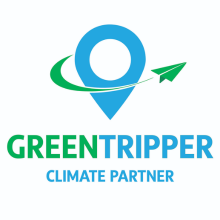
At Greentripper, we help travellers and travel businesses to give back to nature by offering practical climate solutions. We provide tools to understand your carbon footprint, initiatives to reduce it as much as possible, and actionable steps to address the remaining unavoidable emissions.
When we all take responsibility for our emissions, we can collectively tackle the climate crisis. Climate change is a global challenge that demands global collaboration. That’s why we continuously co-create solutions with our clients and partners, specialised for the travel industry while spreading awareness and inspiring action.
Specialised tools for the Travel and Tourism Industry:
An update from Greentripper:
“We are constantly improving and developing tools for the travel sector (and, from 2025, the event sector). Exciting tools with dashboards and AI integrations are in progress! Contact us to learn more about our Climate Solutions.“
Website: www.greentripper.org Contact: natacha@greentripper.org
TerraVerde – who we are:

“TerraVerde is the sustainability consultancy for travel and tourism.
Travel and tourism is a force for good, bringing benefits to people and places worldwide. However, with the industry accounting for 8-11% of global carbon emissions, we must work collectively to minimise its environmental impact and help restore the natural world.
The team combines decades of senior leadership experience with deep expertise in supply chains, environmental science, project management, data management, digital technology, marketing, and communications to deliver exceptional service.”
ETOA caught up with Patrick Richards, Founder Director of TerraVerde, to get his perspectives on cost-saving and marketing opportunities.
“Together, we can drive positive change and ensure a sustainable future for travel and tourism.”
Find out more or contact the TerraVerde team at hello@terraverde-solutions.com.
ZEERO – who we are:
ZEERO delivers an end-to-end service of comprehensive climate solutions, from robust emissions tracking & reporting systems that empower companies to develop effective decarbonisation strategies & extending to strategic joint ventures that scale impact across sustainable fuels, renewable energy technologies & nature-based initiatives.
ZEERO is purpose-driven, grounded in a deep sense of responsibility to give back, inspire action & lead the change toward a more equitable, sustainable future.
***26th June 2025 |Read more about ETOA’s partnership with ZEERO on Travel Weekly.
Website: www.zeero-group.com
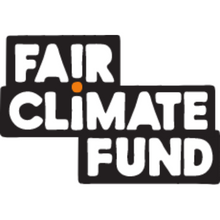 ETOA’s interest in Fair Climate Fund (FCF) arose from its research into carbon finance model: why is there such a price range for carbon credits or ‘offsets’? The concepts of ‘additionality’, the degree to which carbon offsets fund action with positive impact that would not otherwise have occurred is central to this question. Where there is no practical alternative to aviation, offsetting is likely to form part of an individual or corporate plan to mitigate negative impact.
ETOA’s interest in Fair Climate Fund (FCF) arose from its research into carbon finance model: why is there such a price range for carbon credits or ‘offsets’? The concepts of ‘additionality’, the degree to which carbon offsets fund action with positive impact that would not otherwise have occurred is central to this question. Where there is no practical alternative to aviation, offsetting is likely to form part of an individual or corporate plan to mitigate negative impact.
FCF’s presentation given during ETOA ‘Carbon Curious?’ webinar on 22nd October 2020 is available here.
FCF’s 2021 four-step plan for organisations to reduce their carbon footprint is available here (Dutch).
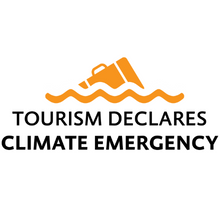 ETOA’s decision to join industry leaders and other stakeholders in the Tourism Declares a Climate Emergency initiative was a public commitment to support the transition to sustainable tourism. For full statement, click here.
ETOA’s decision to join industry leaders and other stakeholders in the Tourism Declares a Climate Emergency initiative was a public commitment to support the transition to sustainable tourism. For full statement, click here.
Website: Tourism Declares
- Develop a ‘Climate Action Plan’
Adopted by your executive board within 12 months of your initial declaration, or sooner if possible.
- Share your commitment and progress publicly
Share your initial public declaration, your ‘Climate Action Plan’, and update on progress against your targets each year.
- Cut carbon emissions
Accept current IPCC advice stating the need to cut global carbon emissions to 55% below 2017 levels by 2030 to keep the planet within 1.5 degrees of warming. Ensure your ‘Climate Action Plan’ represents actions designed to achieve this as a minimum, through delivering transparent, measurable and increasing reductions in total carbon emissions arising from your activities. (Note: The first sentence of 3 is common to all signatories: the second may be adapted to suit the nature of the supporting organisation. For more information on How to Declare: click here.)
- Work together
Encourage suppliers and partners to make the same declaration; share best practice amongst peers; and actively participate in the Tourism Declares community.
- Advocate for change
Recognise the need for system change across the industry to accelerate a just transition towards carbon-free tourism.
Partner with us!
If you have expertise that will help our members transition to more sustainable practice, please get in touch with us.
Contact: sustainability@etoa.org
Climate Action and the Business Environment
Sectoral Policy
The European Commission’s Transition Pathway for Tourism, published in February 2022, identifies 27 topics for action (see Appendix 1). The implementation of all should consider three priorities according to the Commission: “the green transition (environmental sustainability and climate neutrality); the digital transition; the move to a greater resilience.”
Building sectoral resilience requires strategic investment and support for sustainable practice.
There will be public and private sector responses. International aviation emissions are included in EU climate goals. Product and demand will evolve. Clients increasingly require carbon-footprint information. Some may travel less but stay longer. For aviation-dependent destinations, especially islands, how to mitigate impact once on land becomes an ever more pressing concern. With remote working now widely accepted, relocating for a longer period may become more practical and appealing. Group tourism is showing a shift to smaller, more in-depth itineraries.
ETOA as co-chair of the Tourism Manifesto was pleased to support the inclusion of decarbonisation as the first of its four policy priorities in its 2024 – 2029 EU Mandate, Tourism in Transition: A New Consensus for Change.
ETOA represents businesses dependent on long-haul travel to Europe as well as intra-European. While engineering advances and capacity optimisation will decrease emissions per passenger kilometre, overall emissions are rising.
In January 2023, The Travel Foundation published Envisioning Tourism in 2030 and Beyond, which calls for a reduction in the rate of growth of aviation, and a greater focus on short-haul clients and net-zero tourism. A summary was presented at an ETOA webinar in early 2023.
Details of all the Conference of the Parties (COPs) to date can be found here.
COP 29 – Baku
- 20th November 2024 was the Tourism Thematic Day, launching the Baku Declaration on Enhanced Climate Action in Tourism (pp.20-21), which 52 governments signed. An update of the Glasgow Declaration’s progress and more information about tourism at COP29 can be found here.
- A summary of the Tourism Thematic Day and recordings of the two roundtables can be found here.
COP 26 – Glasgow
- The Glasgow Declaration for Climate Action in Tourism was launched at COP 26 with over 300 Launch Partners, including ETOA, with the goal to halve emissions by 2030 and reach net zero emissions by 2050. Signatories of the Glasgow Declaration commit to producing or updating climate action plans (CAPs) within 12 months of signing, delivering results, and reporting on their progress.
Non-Sectoral Policy
The European Union’s Fit-for-55 package aims to deliver 55% emissions reduction by 2030.
In March 2023 the European Commission published proposals for a Green Claims Directive. For the official EC presentation on the proposal and related circular economy initiatives, click here.
Other Resources
IRU Green Compact Research Study: Europe December 2023
The decline in collective transport such as private coaches and public transport during the Covid-19 pandemic was a step backwards environmentally: the modern coach fleet is highly efficient and meets low emission standards. During COP28, ETOA’s partner IRU published their Green Compact research study which assessed scenarios for decarbonising commercial road transport in the EU to reach net-zero by 2050.
Some public transport is already carbon neutral, but train travel still presents obstacles for multi-country travel that needs to be booked well in advance. The transformation brought about by ‘open skies’ and low-cost airlines is not yet matched on land. ETOA works with organisations such as TopRail and ALLRAIL to explore and address these issues.
ETOA Webinars on Climate Action
For ETOA members, more webinars on climate action are available under Sustainability in our Insight Hub.
ETOA’s new sustainability partner, Travelife, will join its other partners NECSTouR and Tourism Declares a Climate Emergency to discuss the Glasgow Declaration, and how its commitments should turn into action. This new consensus-building initiative commits its signatories to climate action plans that will make progress along five pathways: measure; decarbonise; regenerate; collaborate; finance.
Participating Organisations:
- Travelife
- NECSTouR
- Tourism Declares a Climate Emergency





